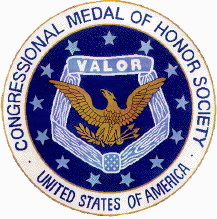|
|
Para ver este documento
en español, oprima aquí.
Puerto Rico Profile: Euripides Rubio
September 24, 1999
Copyright © 1999 THE PUERTO RICO HERALD. All Rights Reserved.
This article is the second
in a series of four profiles on Puerto Ricans who have been recognized
by the most distinguished award offered to military service personnel
by the United States government.
- We few, we happy few,
we band of brothers;
- For he today that sheds
his blood with me
- Shall be my brother.
- -Shakespeare, Henry V, Act, IV, Scene
3
 Euripides
Rubio's shed his blood in Vietnam. Rubio's "inspiration got
us into the thickest fighting and most of us paid the price for
it willingly just as he did," Enrique V. Pujals said. "None
of us begrudged him anything and least of all the recognition
for his example." Euripides
Rubio's shed his blood in Vietnam. Rubio's "inspiration got
us into the thickest fighting and most of us paid the price for
it willingly just as he did," Enrique V. Pujals said. "None
of us begrudged him anything and least of all the recognition
for his example."
Euripides Rubio was awarded the Congressional Medal of Honor.
He was the second Puerto Rican to receive the honor and one of
1,225 Puerto Ricans to lose their lives in the service of their
country.
Born March 1, 1938 in Ponce, Puerto Rico, he enlisted in the
US Army at Fort Buchanan, Puerto Rico, and rose to the rank of
Captain in the 1st Battalion, of the 28th Infantry.
Rubio's efforts during the Vietnam War reflect not only his
dedication to his country, but his commitment to the men he commanded.
"Captain Rubio was well liked by the men who served with
him and [was] quite an inspiring leader." Pujals remembers
Rubio as his company commander when he entered active duty in
September of 1964. Pujals was one of the thirteen platoon leaders
in Rubio's company when they volunteered for Vietnam in late July
of 1965. Many of the company were ordered to Vietnam to fill the
ranks of the first and second Battalions of the 7th US Cavalry
Regiment. Many were from Puerto Rico and of these "most ended
up as casualties" in the Ia Drang Valley battles of November
1965, either killed or wounded. "I felt very sad when I heard
the news that [Rubio] had been killed," Pujals, one of the
wounded from the battle, said. At the time of Rubio's death in
Tay Ninh Province November 8, 1966, Pujals was stationed at Fort
Buchanan, Puerto Rico, recovering after seven months in a hospital
bed.
Rubio's citation gives a chilling account of bravery under
the worst conditions possible. "Intense enemy machine-gun
fire raked the area while mortar rounds and rifle grenades exploded
within the perimeter." Rubio infiltrated the area of the
most intense birage of enemy fire to distribute ammunition, re-establish
positions and render aid to the wounded. For this, he was wounded
twice. Despite these wounds, however, he assumed command when
a rifle company commander was medically evacuated. Then he was
wounded a third time in his attempt to move among his men to "encourage
them to fight with renewed effort."
As he was helping to evacuate other wounded personnel, he discovered
a smoke grenade had fallen too close to friendly lines. In preparation
for friendly airstrikes, the smoke grenades were used to mark
the Viet Cong position. Captain Rubio intended to avert an unnecessary
tragedy and ran to reposition the grenade. He was immediately
"struck to his knees" by enemy fire. Despite his many
wounds, he grabbed the grenade, lumbering through the deadly onslaught
of enemy gunfire, and made it to within 20 meters of the enemy
position. Hurling the already smoking grenade into the midst of
the enemy, he fell for the final time.
His death made a difference. The hostile position was destroyed
because the friendly air strikes were able to use the repositioned
grenade as a marker.
"Captain Rubio's singularly heroic act turned the tide
of the battle, and his extraordinary leadership and valor were
a magnificent inspiration to his men."
The Congressional Medal of Honor speaks of his bravery and
selfless concern, in keeping with the highest traditions of military
service. His service gives credit to himself, his heritage, his
country and the legacy he leaves behind.
|

